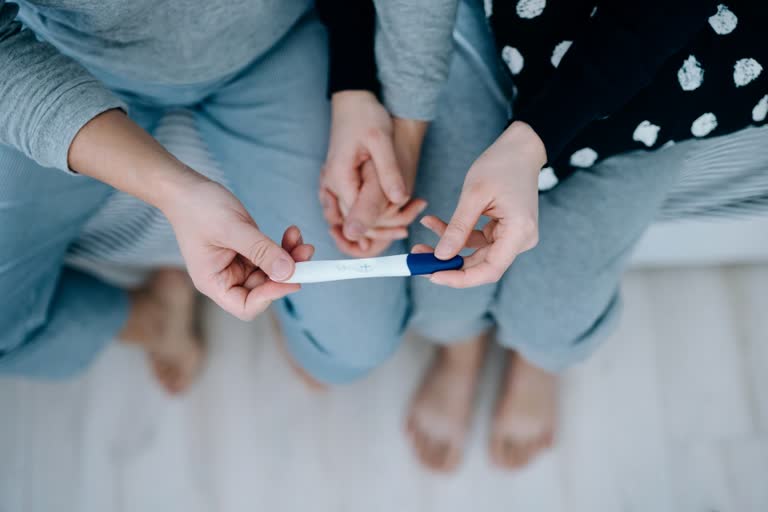A study by the Boston University School of Public Health (BUSPH), published in the American Journal of Epidemiology, of couples trying to conceive found no association between COVID-19 vaccination and fecundability -- the probability of conception per menstrual cycle -- in female or male partners who received the Pfizer-BioNTech, Moderna, or Johnson & Johnson vaccines.
In contrast, the findings indicate that COVID-19 infection among males may temporarily reduce fertility -- an outcome that could be avoidable through vaccination. "Many reproductive-aged individuals have cited concerns about fertility as a reason for remaining unvaccinated," says study lead author Dr. Amelia Wesselink, research assistant professor of epidemiology at BUSPH.
"Our study shows for the first time that COVID-19 vaccination in either partner is unrelated to fertility among couples trying to conceive through intercourse. Time-to-pregnancy was very similar regardless of vaccination status." Wesselink and colleagues analyzed survey data on COVID-19 vaccination and infection, and fecundability, among female and male participants in the BUSPH-based Pregnancy Study Online (PRESTO), an ongoing NIH-funded study that enrolls women trying to conceive and follows them from preconception through six months after delivery.
The researchers calculated the per menstrual cycle probability of conception using self-reported dates of participants' last menstrual period, typical menstrual cycle length, and pregnancy status. Fertility rates among female participants who received at least one dose of a vaccine were nearly identical to unvaccinated female participants.
Fecundability was also similar for male partners who had received at least one dose of a COVID-19 vaccine compared with unvaccinated male participants. Additional analyses that considered the number of vaccine doses, a brand of vaccine, infertility history, occupation, and the geographic region also indicated no effect of vaccination on fertility.
While COVID-19 infection was not strongly associated with fertility, men who tested positive for COVID within 60 days of a given cycle had reduced fertility compared to men who never tested positive, or men who tested positive at least 60 days prior. This data supports previous research that has linked COVID-19 infection in men with poor sperm quality and other reproductive dysfunction.
"The prospective study design, large sample size, and geographically heterogeneous study population are study strengths, as was our control for many variables such as age, socioeconomic status, preexisting health conditions, occupation, and stress levels."
Also Read: COVID-19 vaccine does not increase risk of preterm birth: Study




